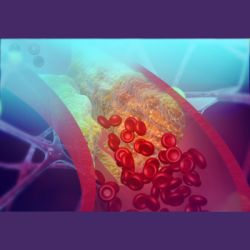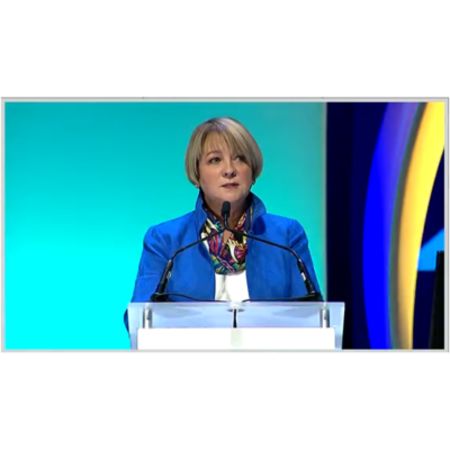RSNA President, Dr Mary Mahoney, at RSNA 2021’s opening session Sunday afternoon, urged radiology to use lessons from the COVID-19 pandemic to refine itself as a ‘value-based, service-oriented specialty’.
Dr Mahoney’s lecture focused on using the lessons learnt from the COVID-19 crisis to move forward. The pandemic uncovered weaknesses in the profession relating to staffing workflow, and patient access. She reflects on the pandemic’s early days when radiology departments faced staffing shortages, hiring freezes, and a revenue loss due to a pause in noncritical imaging studies. Leaders scrambled to develop safety protocols for an unprecedented crisis, researchers suspended work, and patients put their health care ‘on hold’. The pandemic had a tremendous impact, with providers across the globe all simultaneously experiencing a ‘monumental health crisis’.
She said: ‘When COVID-19 arrived, everything halted, everything came to a stop. We found ourselves taking a detour down a dark and winding road.’
The pandemic revealed vulnerable populations. ‘Health care inequities were laid bare when, because of location, lack of insurance or transportation, fear of losing their jobs or even mistrust of the medical establishment, people were unable to access the critical care they needed.’
Mahoney said that given that radiology’s importance in the healthcare continuum, radiologists should understand the critical role they play in medical care, the value that they provide, and leverage tools that enhance their ‘ability to provide subspecialised expertise to patients, the medical community, and the public at large, without limitations imposed by demographic or socioeconomic status.’
‘We need to become less reactive and more proactive,’ she said. Radiology, as a field, must embrace technology, including one of its most potent tools, artificial intelligence (AI), despite the trepidation with which some radiologists first viewed AI when it first arrived. She noted AI-dependent COVID-19 detection presented at this year’s meeting and the results from RSNA-sponsored AI challenges in brain tumour detection. Radiology can use AI technology to improve workflows and allow radiologists to focus more on patients.
‘For too long, radiologists have focused on the image at the expense of the person. We are experts at analysing and deciphering images of every part of a patient’s body, but the whole is greater than the sum of its parts,’ Mahoney said. She urged her peers to ‘not just view patients as compilations of images’. Instead, radiologists should better balance the science of imaging with the ‘art of care.’
RSNA expects about 19,000 on-site attendees at the meeting, much lower than before the pandemic in 2019, when the conference was last held in person. About 4,000 more are registered to attend virtually. By comparison, 51,800 attended the 2019 meeting.
During the plenary session, RSNA also honoured the memory of Dr Sanjiv Gambhir, chair of radiology at Stanford University, who died of cancer on July 18, 2020, and Dr Lawrence Bassett, professor emeritus of radiological sciences at the University of California, Los Angeles, who passed away on December 15, 2020.
Source: RSNA 2021, RSNA Daily Bulletin



























